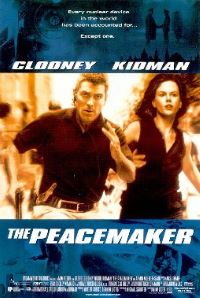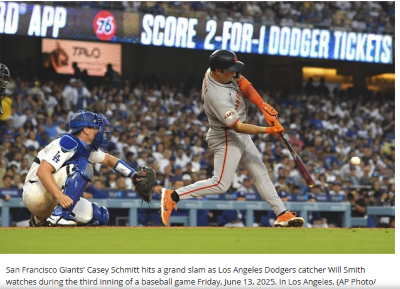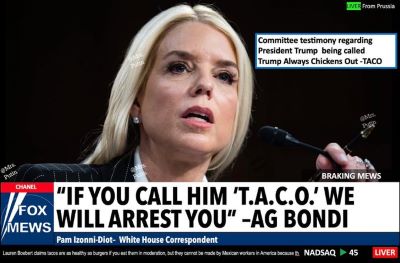
The National Council of Public History (NCPH) held its annual conference March 27-30 in Hartford. I was unable to attend that conference. Fortunately, the conference abstracts are posted to the NCPH website so it is possible to get a better sense of the presentations than from just knowing the titles and the presenters. It would be nice if all conferences would include the abstracts on the conference website.
This report on the conference will cover four areas: workshops, storytelling, current issues, and careers/teaching.
I. Workshops
To begin with, the conference included workshops which required supplemental fees. These workshops included storytelling, podcasts, digital development and collaborations with local college students.
Preservation Leadership Training | Repair Work: Telling the Full Story at Our Historic Sites $50
Facilitators: Hilary Lewis, The Glass House; Krystyn Silver, Lyndhurst Mansion; Carrie Villar, National Trust for Historic Preservation; Carolyn Wallace, Cliveden of the National Trust
For decades, public historians have been working to tell the full history of the American past at historic sites around the country. However, preservation and collections practices have limited methods to tell those stories using material culture and existing physical spaces. During this Preservation Leadership Training facilitated by staff at the National Trust for Historic Preservation, attendees will learn new best practices for inclusive interpretation at historic sites through case studies from historic sites around the country. Using interactive methods, participants will learn how to understand and include voices that were deliberately excluded in previous interpretations at historic sites and obtain strategies and tools to address the absence of collections, material culture, and critical documentation. This workshop is sponsored in kind by the National Trust for Historic Preservation.
Reacting to the Past” and Public History: Teaching Historical Contestation through Immersive Game Play$22
Facilitators: Katie Stringer Clary, Coastal Carolina University; Abigail Gautreau, Grand Valley State University; Dan Ott, University of Wisconsin, Eau Claire; Victoria Peck, Coastal Carolina University
Reacting to the Past (RTTP) is an innovative, game-based pedagogy used in college classrooms across multiple disciplines. Begun as a way to teach students about the complex, contested nature of history through immersive simulations of historical events, RTTP offers public historians a fun and effective way to introduce students to the theory and history of public history using role-playing games. In this interactive workshop, participants will participate in mini-games, learn about using RTTP in the classroom, and discover strategies for incorporating RTTP into public programming.
Introduction to Podcasting for History Organizations $20
Facilitator: Hannah Hethmon, H. Hethmon Consulting
Podcasts have been a growing medium for ten years, but in the last two years they have been facing an unprecedented level of growth and creativity, making them a great way for history organizations to communicate with audiences in intimate, accessible ways. This workshop will introduce participants to every aspect of in-house podcast production, from choosing a topic to editing to marketing the show. In the afternoon, attendees will get hands-on experience producing a podcast. Plenty of time will be dedicated to discussion and workshopping participants’ podcast concepts.
Digital Public History Lab $25
Facilitators: Julie Davis, Research for Indigenous Community Health, University of Minnesota; Abby Curtin Teare, Grants Plus
The NCPH Digital Media Group is organizing the Digital Public History Lab—a workshop that provides opportunities for collaborative learning and professional networking around digital resources, skills, and strategies for public historians and professionals working in adjacent fields (e.g. librarianship). The workshop will consist of a combination of pre-planned breakout sessions and sessions on topics generated by participants on the day of the workshop. Digital Public History Lab is an informal, inclusive, participatory experience. All levels of tech-savviness (or lack thereof) are welcome. Those who have participated in NCPH’s THATCamp in previous years will recognize this model! Organized by the NCPH Digital Media Group and co-sponsored by Greenhouse Studios at the University of Connecticut and the University of Central Florida.
Bootcamp sessions will include:
Build Your Own Public History Story Map
Facilitators: Fionnuala Darby-Hudgens, Connecticut Fair Housing Center; Jack Dougherty, Trinity College; and Ilya Ilyankou, Connecticut Data Collaborative
Story maps guide web visitors on a point-by-point journey through a historical narrative, with optional photos, audio, or video on an interactive map. In this hands-on workshop, facilitators will briefly compare free and easy-to-use story map platforms, and help you build your own version with our recommended open-source tool: Leaflet Story Maps with Google Sheets. Featured examples include Hartford civil rights history story maps created with community partners and Trinity College undergraduates.
There also was a session “Imagining the 250th” but with no description. If it was about the 250th anniversary of July 4, then it will be the subject of a separate blog. There was a table on the subject at the Massachusetts History Alliance conference last year and the New York State Historian has begun to call meetings on the topic.
II Storytelling
Turning to the conference presentations, there were other sessions on storytelling as well. Some of these activities as with the storytelling workshops were similar to those reported in an earlier blog History Storytelling: A Local Theatrical Experience
Performing History and Enlivening Community
A Broken Umbrella Theatre is an award-winning, community-enlivening, ensemble creating historically-inspired theater in New Haven, Connecticut. Join the collaborators of this ten-year-old troupe to explore how they take a moment in their city’s rich history and explode it into a immersive, intergenerational, site-specific theater experience. Participate in their devising process and take a deep dive into songs, scenes, and design elements from Freewheelers, an original work which explores the intersection of the corset and the bicycle on the streets of New Haven.
Facilitator: Rachel Alderman, A Broken Umbrella Theatre
Participants: Chrissy Gardner, A Broken Umbrella Theatre Robin Levine, A Broken Umbrella Theatre Aric Isaacs, A Broken Umbrella Theatre Ruben Ortiz, A Broken Umbrella Theatre
Reading Frederick Douglass in Hartford
Join a participatory reading of Frederick Douglass’ 1852 speech, “What to the Slave is the Fourth of July?” in which the abolitionist orator presses Americans to live up to the ideals embodied in the Declaration of Independence. The reading will be followed by a discussion of patriotism and race in 1852 and 2019. In the face of increasing social and political polarization, how might we live up to the standard set by the Declaration and by Douglass himself; and how does a communal reading of a 19th-century speech help us work on the repairs to the civitas we desperately need? Presenters will share experiences and insights garnered from organizing readings since 2009.
Facilitators: Pleun Bouricius, Massachusetts History Alliance David Harris, Charles Hamilton Houston Institute for Race and Justice, Harvard Law School Paul Marcus, Community Change, Inc., Boston
III Current Issues in Public History
Some of the sessions addressed current issues about the types of history to present and in what way.
Beyond Granite: New Directions in Commemoration
Given the power of commemoration to stir local and national interest in history and “what gets remembered,” can we look beyond the limited, static nature of granite and bronze memorials to envision dynamic, broadly accessible, annotatable possibilities for this important form of public history? How might digital interventions serve to repair some of the flaws embedded in traditional commemoration? Museum professionals, historians, and digital media experts discuss possibilities for the future of monuments and memorials.
Panelists: Report to the City, Paul Farber, University of Pennsylvania New Dimensions in Testimony and Memorialization, Kelsey Jagneaux, Florida Holocaust Museum The Atlas of Southern Memory: A Digital Intervention in Commemoration, Caroline Klibanoff, MIT Museum Commemorating Black Advocacy in the 21st Century: Expanding the Definition of Memorialization, Krista Pollett, Texas State University Oral History Project GIS and the City: Podcasting Pittsburgh’s Public Art and Monuments and Building Community Connections, Jennifer Taylor, Duquesne University
States of Incarceration Exhibit Reception
Hartford Public Library Atrium
FREE and open to the public
States of Incarceration, a project of the Humanities Action Lab, is a traveling exhibit representing the efforts of over 500 people in 27 cities to document and explore the past, present, and future of incarceration in America. Teams of students and community partners across the country collaborated to explore incarceration in their hometowns. The exhibit is currently on display at the Hartford Public Library, which is hosting a reception coinciding with this year’s NCPH conference. Connecticut’s contribution to the exhibition, which explores local historic prisons and tourism, was designed by history students at the University of Connecticut. In addition to the States of Incarceration exhibition, the Hartford Public Library is also hosting 40 Years of the CPA Prison Arts Program, an art exhibit in honor of this crucial program that advocates for art and artists in prison and organizes workshops for people who are currently or formerly incarcerated in Connecticut. NCPH attendees are invited to attend the reception, which will include a viewing of both exhibits, a brief program, and light refreshments.
Streets Paved With Gold: Exploring Immigration Past and Present at Ellis Island
Streets Paved With Gold is an upcoming exhibit created for Ellis Island The National Museum of Immigration in New York City. It encourages visitors to reflect on their personal experiences with immigration in the past and present. Using the upcoming exhibit as a case study, the session will discuss how Ellis Island and the National Park Service have helped to facilitate today’s conversations on immigration. Participants will detail how Streets Paved With Gold has given voice to the personal immigrant experience by providing a much-needed platform for individuals to unpack and share their reflections on coming to the United States. Attendees will be invited to interact in a roundtable discussion and fill out a “gold brick” as part of the session. Finally, we’ll close with a question and answer portion to discuss the next steps for the project and to explore the process and goals of the Ellis Island staff.
Participants: Kristin Szylvian, St. John’s University Peter Wong, National Park Service
IV Public History Careers and Teaching
Some sessions were more institutional in nature relating to the career of the public historian
Public History Educators’ Forum $25
This annual event is an opportunity for faculty to share ideas about running graduate and undergraduate public history programs and to talk about university, departmental, and a wide variety of other issues. The discussion is always lively. Organized by the Curriculum and Training Committee and co-sponsored by Arizona State University, the American West Center, University of Utah, and the University of Massachusetts Amherst.
Early Career Public History Academics: Questions, Issues, Resources
Stemming in part from developments in the larger structures of academia, more history departments are creating undergraduate and graduate tracks in public history. Because of the realities of the academic job market, it is likely that new hires in public history programs come to their positions from different regions, face complicated retention, tenure, and promotion standards, and take on extensive administrative responsibilities that can involve picking up existing projects, negotiating the infrastructures of multiple academic units and local organizations, and bringing in funding for projects and students. Where are the professional resources and networks for these kinds of challenges? And where are the structures of accountability that protect junior faculty embarking on public history careers? The goal of this working group is to begin a conversation about the issues and opportunities specifically faced by early-career public history academics—these might include building relationships, navigating institutions and infrastructures, and advocating for diversity and inclusion as relative newcomers.
Facilitators: Torren Gatson, University of North Carolina at Greensboro Jennifer Le Zotte, University of North Carolina at Wilmington Mary Rizzo, Rutgers University–Newark Malgorzata Rymsza-Pawlowska, American University
Discussants: Sarah Doherty, North Park University Kathryn Lasdow, Suffolk University Anne Lindsay, California State University, Sacramento Mollie Marlow, University of West Georgia Heather Stanfiel, University of Notre Dame Jennifer Thornton, West Virginia University Lindsey Wieck, St. Mary’s University
Best Practices in Action: The State of Teaching Public History in University Classrooms
Several years ago, NCPH developed “Best Practices” guidelines for teaching public history in university settings. More recently, public historians have benefitted from textbooks on public history. With these resources at our fingertips, what is the state of teaching public history in university classrooms, or rather, is there any kind of uniformity or “state” at all? Public historians who have taught recent introductory public history courses will share their unique experiences and invite audience participation.
Facilitator: Leslie Madsen, Boise State University
Participants: Kristen Baldwin Deathridge, Appalachian State University Randolph Bergstrom, University of California, Santa Barbara Julia Brock, University of Alabama Evan Faulkenbury, SUNY Cortland Tawny Paul, University of Exeter
These abstracts on the workshops and presentations at the NCPH conference provide some sense of the subjects and topics of interest to the public historian today. They may also spark some ideas about possible sessions and workshops to be held at regional and state conferences in our own area.






2 thoughts on “What’s New in Public History?”
Comments are closed.